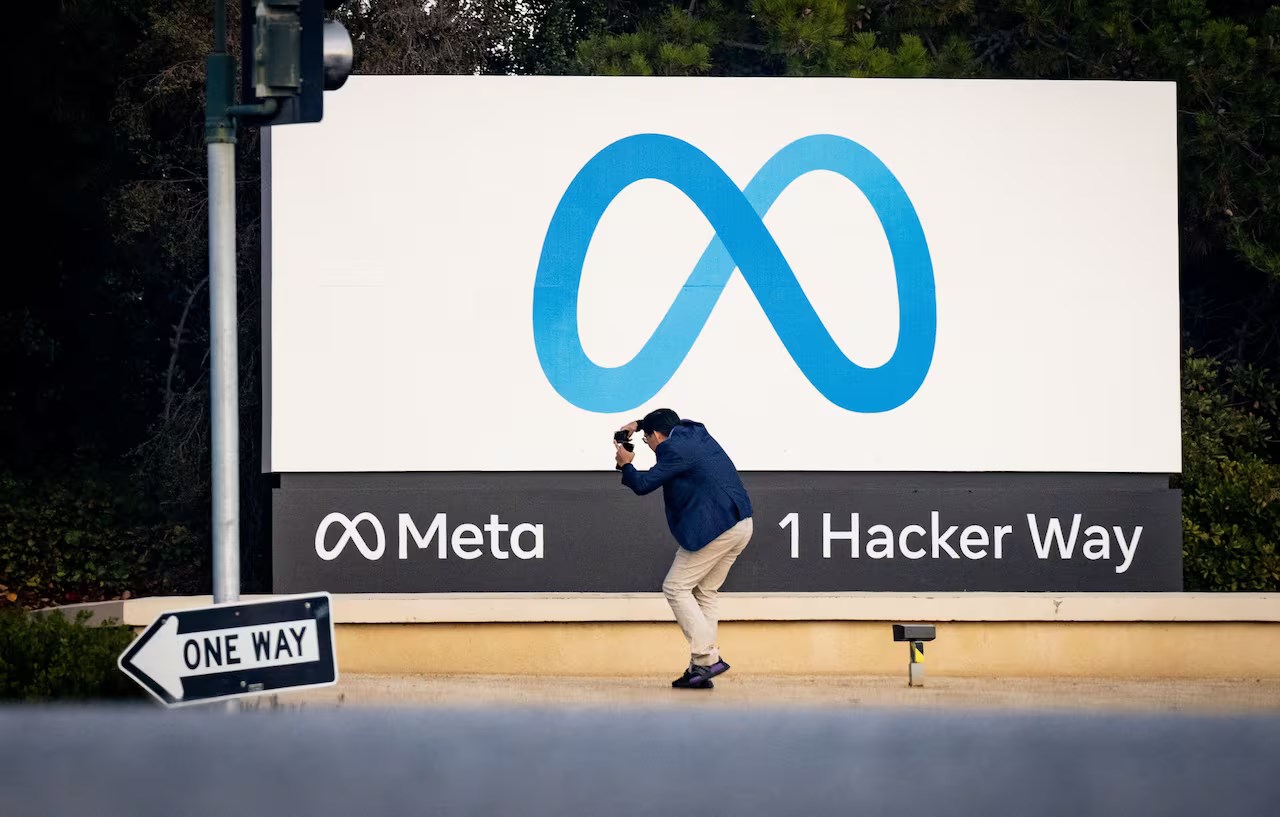Meta to limit news after Canada passes bill for publisher compensation
The Online News Act requires platforms like Meta and Google to pay news organizations for their content and to negotiate commercial deals.
-

A man takes a photo at Meta corporate headquarters in Menlo Park, California, on November 9, 2022 (AFP)
After the Canadian parliament passed an online news bill recently, Meta decided to restrict news access in the country as a result, since it asks for compensation for news publishers for content posted on their sites.
The same scenario took place in Australia in 2021 after it passed a similar law and users were blocked from viewing or sharing news on Facebook. However, that was rescinded after the government negotiated with Meta.
The Online News Act, which was passed by the Senate on Thursday, requires platforms like Meta and Google to pay news organizations for their content and to negotiate commercial deals.
In response, Meta labeled the law as a "fundamentally flawed legislation that ignores the realities of how our platforms work." Both Meta and Google have been testing attempts to block news already.
Read next: Facebook was asked to 'censor' COVID misinfo that ended up true: CEO
News access will be ended on Facebook and Instagram for Canada before the bill takes effect, according to Meta.
Canada's not alone, as the US state of California also faces the same threat by Meta, which warned that it will eliminate news links from its platforms in California if state legislators proceed with a bill that seeks to impose a tax on news content, according to a report by Axios.
A Meta spokesperson told Reuters, "A legislative framework that compels us to pay for links or content that we do not post, and which are not the reason the vast majority of people use our platforms, is neither sustainable nor workable."
On the other hand, Google saw the bill as "unworkable" and stated that it was attempting other ways to work with the government to find a "path forward".
The federal government justified the online news bill as a way "to enhance fairness in the Canadian digital news market" and to give struggling news organizations "secure fair compensation" for content on the platforms.
Market fairness
An independent parliament budget watchdog stated that news organizations could receive nearly C$329 million ($250 million) annually from digital platforms if Meta were to agree.
Canadian Heritage Minister Pablo Rodriguez told Reuters this month that the attempts to block news from the tech platforms as "unacceptable" and a "threat".
Rodriguez's office announced on Thursday that he convened with both Google and Facebook for further discussions but the government still intends to move forward with the bill.
"If the government can't stand up for Canadians against tech giants, who will?" he said in a statement.
The Online News Act is due to take effect in six months. Media groups in Canada showed appreciation for the bill's passage, calling it a step towards fairness in the market.
Paul Deegan, president and chief executive officer of News Media Canada, said in a statement, "Real journalism, created by real journalists, continues to be demanded by Canadians and is vital to our democracy, but it costs real money."
Meta and Google have been at odds with world governments who seek to mandate payment to publishers for content displayed on their platforms.

 3 Min Read
3 Min Read








